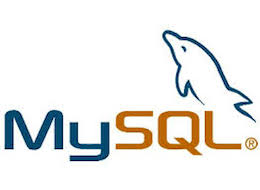How To Uninstall MySQL on Ubuntu 24.04 LTS

In this tutorial, we will show you how to uninstall MySQL on Ubuntu 24.04 LTS. MySQL, the popular open-source relational database management system, is a staple in many Ubuntu installations. However, there are times when you might need to uninstall it. Whether you’re troubleshooting issues, upgrading to a newer version, or simply cleaning up your system, knowing how to properly remove MySQL is crucial. This guide will walk you through the process of uninstalling MySQL from Ubuntu 24.04, ensuring a clean and complete removal.
Uninstalling MySQL isn’t just about deleting a few files. It involves stopping services, removing packages, cleaning up configuration files, and ensuring no remnants are left behind. Improper removal can lead to conflicts with future installations or leave unnecessary files cluttering your system. By following this guide, you’ll be able to completely uninstall MySQL, leaving your Ubuntu system clean and ready for whatever comes next.
Prerequisites
- A server running one of the following operating systems: Ubuntu and any other Debian-based distribution like Linux Mint.
- SSH access to the server (or just open Terminal if you’re on a desktop).
- Knowing your MySQL version and how it was installed can help in the uninstallation process.
- An active internet connection.
- An Ubuntu 24.04 system with root access or a user with sudo privileges.
Uninstall MySQL on Ubuntu 24.04
Step 1. Back-Up Your Data.
This is crucial. Before uninstalling MySQL, back up all your databases. You can use the mysqldump utility for this purpose:
sudo mysqldump --all-databases > mysql_backup.sql
Step 2. Uninstall MySQL on Ubuntu 24.04.
- Method 1: Using APT Package Manager
The APT (Advanced Package Tool) package manager is the most common way to manage software on Ubuntu systems. We’ll use it to uninstall MySQL.
Before removing MySQL, it’s important to stop the MySQL service to prevent any data corruption or conflicts during the uninstallation process:
sudo systemctl stop mysql
Verify that the service has stopped:
sudo systemctl status mysql
Now that the service is stopped, we can proceed with removing the MySQL packages:
sudo apt remove --purge mysql-server mysql-client mysql-common
Remove any additional MySQL packages:
sudo apt remove --purge mysql-server-core-* mysql-client-core-*
Even after removing the packages, some configuration files might remain. Let’s remove them:
sudo rm -rf /etc/mysql sudo rm -rf ~/.mysql
Caution: This step will delete all your MySQL data. Make sure you have a backup if you need any of this data:
sudo rm -rf /var/lib/mysql
- Method 2: Manual Uninstallation
While the APT method is usually sufficient, sometimes a more thorough, manual approach is necessary. This method involves identifying and removing MySQL processes, binaries, and system files.
First, let’s make sure no MySQL processes are running:
ps aux | grep mysql
Next, we’ll remove MySQL binary files:
which mysql mysqladmin mysqldump mysqlshow
Remove these binaries:
sudo rm -rf /usr/bin/mysql /usr/bin/mysqladmin /usr/bin/mysqldump /usr/bin/mysqlshow
Now, let’s remove any remaining MySQL system files:
sudo rm -rf /var/lib/mysql sudo rm -rf /var/log/mysql sudo rm -rf /etc/mysql
After following either method, it’s important to verify that MySQL has been completely removed from your system:
dpkg -l | grep mysql
By following these steps and using the troubleshooting tips provided, you should be able to successfully remove MySQL from your Ubuntu 24.04 system. Always exercise caution when removing system packages, and make sure to back up important data before making significant changes to your system.
Congratulations! You have successfully removed MySQL. Thanks for using this tutorial to uninstall MySQL on the Ubuntu 24.04 LTS system. For additional help or useful information, we recommend you check the official MySQL website.